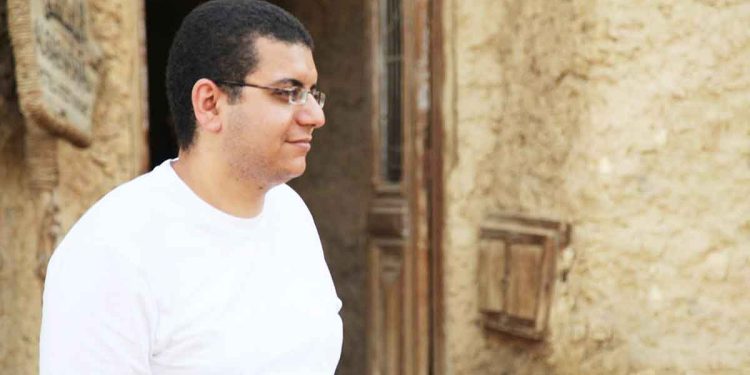Egypt continues its policy of targeting independent voices, researchers and journalists who seek to address sensitive issues outside the state’s official narrative, amid systematic violations by the authorities of freedom of expression in the country.
In this context, the Supreme State Security Prosecution has ordered the well-known researcher and journalist Ismail Alexandrani to be held in custody for fifteen days pending investigation.
The decision falls under Case No. 6469 of 2025, with serious charges described as including “spreading false news, joining a terrorist organisation and using a website to promote extremist ideas”. This charge the Egyptian authorities often bring against their critics in order to prosecute and harass them.
Alexandrani was arrested in the early hours of Wednesday at a security checkpoint near the city of Marsa Matrouh, after which his phone was switched off and he disappeared for several hours, raising fears that he had been forcibly disappeared, especially given that he is a former political prisoner who has already paid a heavy price for his research and writings.
Ismail Alexandrani is regarded as one of the leading researchers specialising in Islamic movements and the issues of North Sinai. He was previously arrested in 2015 upon his return from Germany and sentenced by a military court to ten years’ imprisonment, later reduced to seven, before being released in December 2022.
His return to prison less than three years after his release highlights a recurring pattern known locally as “recycling”, in which those released are re-listed in new cases to prolong their detention indefinitely in a clear violation of constitutional and legal safeguards.
The case carries stark human rights implications. It reflects an infringement of the right to freedom of expression and academic research, since the core of the charges against Alexandrani is directly linked to his writings and studies on Sinai. The circumstances of his arrest and the hours-long shutdown of his phone also point to the possibility of enforced disappearance, contravening the most basic legal rules guaranteeing a detainee’s right to contact his family and lawyer.
It also reveals a troubling politicisation of the judiciary, with the charge of “joining a terrorist organisation” now used as a pretext against anyone who criticises state policies or sheds light on the darker aspects of the political and social landscape. Targeting a prominent researcher who has already spent years in prison sends a clear deterrent message to other academics and activists: any attempt at independent expression may end in the same fate.
The decision to detain Ismail Alexandrani for 15 days pending investigation is not merely a procedural step, but another stage in a systematic assault on freedom of expression and academic inquiry in Egypt. This case underlines the authorities’ continuing use of anti-terrorism laws as a weapon to silence independent voices. It also reflects a deep crisis between the state and citizens’ fundamental rights and placing the future of freedoms in the country under unprecedented strain.
























